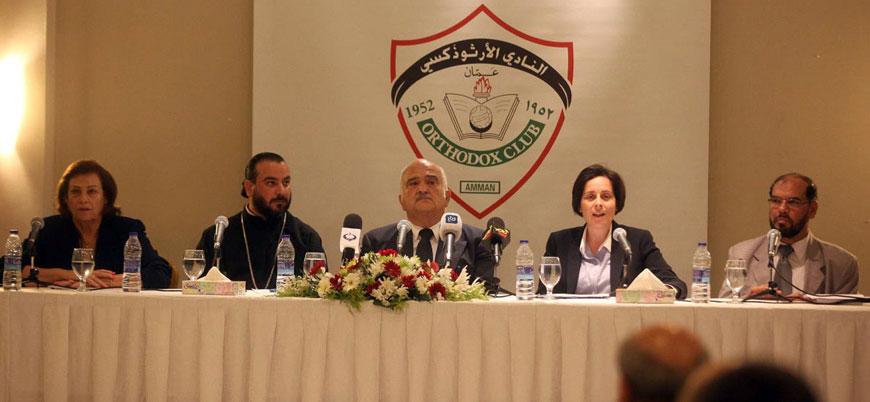AMMAN — HRH Prince Hassan attended the launch of a book by Archimandrite George Agapios Abu Saada, a priest in the Greek Melkite Catholic Archeparchy of Akko, which discusses the history of Arab Christians in the Middle East and the dangers they face today.
The event, which took place at the Orthodox Club, was held in cooperation with the Royal Institute of Interfaith Studies (RIIFS), and the club’s cultural committee. The Prince is the chairman of RIIFS’ board of trustees and he wrote the book’s introduction.
Abu Saada, the pastor of Saint Elijah’s Cathedral in Haifa, Palestine, stated that the Muslim world was standing in silence despite the violence and discrimination faced by Christians in the Middle East.
He said: “Till now, no Islamic authority has issued a religious ruling [fatwa] prohibiting the killing of Christians and non-Muslims… Is there a true Arab Islamic wish to preserve and keep the Arab Christians in their land?”
The prince said that Christians in the Middle East required “human safekeeping”.
He stressed that Christianity is original to the Middle East rather than a Western import and that it has made important contributions to Arab Islamic culture.
Arab history books, school curricula, and drama underemphasise the role of Christians, commented Hind Abu Shaar, modern history professor at Al al Bayt University, and Wajeeh Abed Alrahman, a leading academic.
Father Rifat Bader, director of the Catholic Centre for Studies and Media told The Jordan Times that Jordanian Christians should have the right to learn about their historical roots, and that Muslims should also have opportunities to learn about historical cooperation between Christians and Muslims.
Abu Saada stated that despite his concern for the status of Christian-Muslim relations in the Middle East today, he had deep faith that Muslims and Christians could live side by side.
He called for strict laws constraining clergy from all religions to prevent incitement of extremism among the public and civil society organisations.
Prince Hassan said: “How can we convey the voice of righteousness, both the strong and moderate, to the outside world if there is no agreement between us? Should we wait for another catastrophe to happen?”
He urged that dialogue between Christians and Muslims in the Arab world should rely not on doctrines and theological beliefs, but on shared relationships based on mutual respect.
Source: Jordantimes






